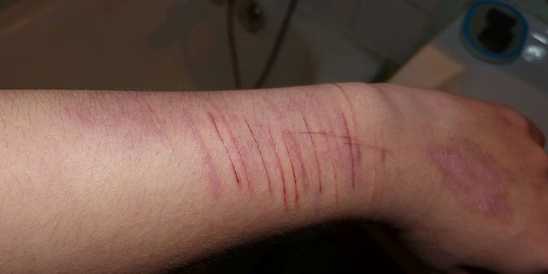
Training on understanding, preventing and responding to self injury
A one day training course for anyone who looks after or cares about a person who self injures.
This is a common behaviour, but one of the most perplexing of all human behaviours. It appears to make no sense. Why is it that some people claim that behaviour that looks so painful and disturbing makes them feel better? Why is this behaviour so contagious? Why can it spread so quickly through a school or children's home? How should we respond to self injurous behaviour?
We have only begun to make sense of this behaviour and come up with answers to these questions in the last few years. This one day course is based on the research of the Cornell University Self-injury and Recovery Research and Resources project and the training developed by the director Janis Whitlock. The behaviour is now referred to by academics as non-suicidal self-injury (NSSI) to distinguish it from self harming behaviour with a suicidal intention.
The course covers:
Please get in touch if you would like to find out more about this training
A one day training course for anyone who looks after or cares about a person who self injures.
This is a common behaviour, but one of the most perplexing of all human behaviours. It appears to make no sense. Why is it that some people claim that behaviour that looks so painful and disturbing makes them feel better? Why is this behaviour so contagious? Why can it spread so quickly through a school or children's home? How should we respond to self injurous behaviour?
We have only begun to make sense of this behaviour and come up with answers to these questions in the last few years. This one day course is based on the research of the Cornell University Self-injury and Recovery Research and Resources project and the training developed by the director Janis Whitlock. The behaviour is now referred to by academics as non-suicidal self-injury (NSSI) to distinguish it from self harming behaviour with a suicidal intention.
The course covers:
- Myths and realities of self injury.
- Why it happens. The latest evidence from neuroscience on why inducing physical pain can help people deal with strong emotions.
- Assessing risk
- Responding as an organisation and as an individual.
Please get in touch if you would like to find out more about this training
